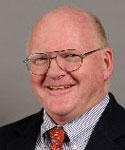 Staffing enough rheumatologists at a practice is a balancing act. What are some signs it’s time to hire a new rheumatologist? And what are indications that you should hold off on adding a rheumatologist?
Staffing enough rheumatologists at a practice is a balancing act. What are some signs it’s time to hire a new rheumatologist? And what are indications that you should hold off on adding a rheumatologist?
Jonathan M. Greer, MD, FACR, FACP, president, Arthritis and Rheumatology Associates of Palm Beach in Florida, says that when a rheumatologist first announces they will be retiring is an opportune time to begin lining up a replacement. “We look for someone at least one year and preferably two years in advance of the retirement date, because it can take a long time to find the right fit,” he says. “This [approach] enables us to have a good applicant pool and find someone who meets our needs and accepts our requirements.”
Wait times: Long patient wait times for appointments are another consideration. With seven rheumatologists and one physician assistant, Dr. Greer’s practice currently has a three-week wait time for new patients to get an appointment.
“Given this [waiting period], we are contemplating hiring two [additional] rheumatologists,” he says. “But we must also consider how comfortable current rheumatologists feel about adding a new physician. They may be reluctant to do so, because they [may] fear losing patients from their base. On the other hand, we [may] lose new patients if wait times are too long.”
Additionally, growth potential is a factor rheumatology practices need to consider. Not only is the population of South Florida growing, but rheumatology practices nationwide are saturated with patients due to a growing number of retiring rheumatologists. In light of these facts, Dr. Greer, who is also an affiliate clinical professor of medicine, Nova Southeastern University, Boynton Beach, Fla., expects more people to seek rheumatology care at practices accepting new patients.
New skills needed: Jeffrey G. Lawson, MD, physician, Piedmont Arthritis Clinic, Greenville, S.C., says a practice may also want to add a rheumatologist if their staff is in need of a specific skill, such as certification to use ultrasound.
Before You Hire…
Certain factors may make holding off on a new hire a necessity. Example: If the practice cannot physically accommodate another rheumatologist, there is no point in hiring one. Explore all angles before making this decision. Is it possible to expand the practice’s size or move to a larger facility? Can the practice reduce the number of exam rooms dedicated to one physician and use some of them for the additional physician?
Also, a new rheumatologist must be able to bring in enough income to support themselves, as well as the practice. “When hiring an associate, you’ll pay their insurance, medical assistant salaries and so forth,” Dr. Greer says. “In the first year, you rarely profit from a new hire, but after the second year and onward this should occur.”
Practices should also weigh the economic stability in their region before taking on another rheumatologist. Dr. Greer says that an economic downturn may cause residents to leave an area, forcing a practice to downsize.
“If the unemployment rate in your area is high, there’s a greater chance patients won’t have health insurance and [will] forgo care. Or they will want to be seen for free,” Dr. Lawson adds.
Another hint it’s not the right time to take on another rheumatologist is if a large health insurer intends to stop providing coverage to your area. This situation may reduce the number of patients seeking care at your practice, Dr. Greer says.
Think Beyond the Physician
If hiring a rheumatologist doesn’t look like it will pay off in the long run, consider hiring a physician assistant or nurse practitioner instead. “We’ve found that these healthcare providers can see patients at a lower cost,” Dr. Lawson says. “It’s not unusual for some rheumatology practices to have three or four nurse practitioners who see new patients, as well as follow-up patients.”
The bottom line: Even if hiring another rheumatologist seems like the right step, carefully consider all factors before proceeding.
Karen Appold is a medical writer in Lehigh Valley, Pa.





